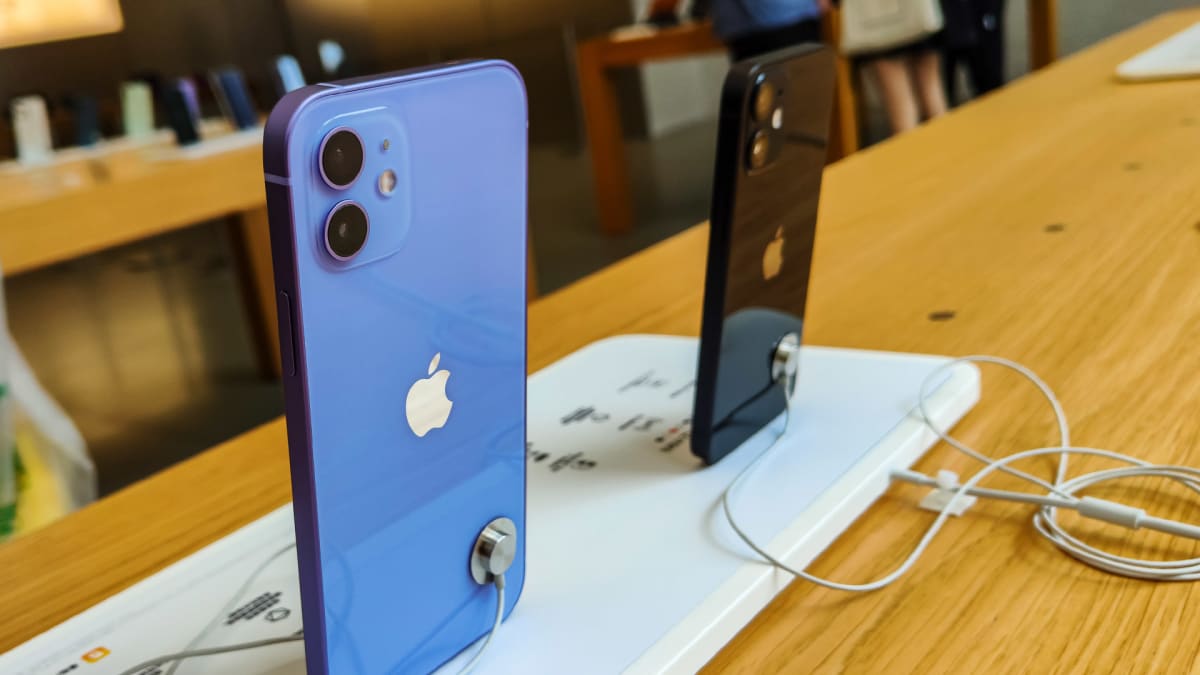
Apple reached a new record as its market capitalization rose to $2.7 trillion.
The iPhone and Macbook manufacturer's valuation soared this week to beat the entire Russell 2000, an index consisting of small cap companies, for two weeks.
DON'T MISS: Apple, Sitting on $57B Cash, Plans Bond Sale Yielding More Than Treasurys
Investors in Apple (AAPL) should feel confident that the stock can maintain its current valuation, Thomas Hayes, chairman of Great Hill Capital in New York, told TheStreet.
"It's overvalued relative to historic multiples, but I don't see any reason why it should go down materially at this point," he said.
Apple's business model remains extremely profitable.
"The business moat is simply too strong," Hayes said.
The market cap of Apple beat the valuation of Russell 2000 on April 27 or all the 2,000 stocks in the small cap index
Back on Sept. 1, 2020, Apple’s valuation beat the Russell 2000, but it only lasted for one day.
During the past year, shares of Apple rose by 15.26% as big tech has made a comeback. Shares of Apple dipped slightly by 0.19% to $171.74 at 1:13 p.m. E.T.
Shares of Apple rose after its second quarter earnings surprised Wall Street. The Cupertino, Calif.-based tech giant reported a rise in iPhone sales and a new $90 billion share buyback.
CFO Luca Maestri said he estimates June's quarter revenue growth at similar levels to March, with gross margins pegged between 44% and 44.5%.
Apple reported earnings for the three months ending in March, the group's fiscal second quarter, rose to $1.52 per share, a tally that was flat to last year and nearly 10 cents ahead of the Street consensus forecast of $1.43 per share.
Group revenues fell by 2.5% from last year to $94.84 billion, again topping analysts' estimates of $92.9 billion.
Apple said iPhone revenues rose 1.5% from last year to $51.33 billion, linked in part to the sale of high-end iPhone Pro models that were jammed-up over the holiday period. Sales in China were weaker and declined to 2.9% to $17.81 billion amid an uneven post-covid recovery in the world's second-largest economy.
Revenues from Apple's key services business, which includes Apple Pay, iCloud and Apple TV, increased by 5.5% to $20.91 billion.
Hardware sales, as expected were soft: Mac sales fell 31% from last year to $7.17 billion, Apple said. Sales of iPads fell by 13% to $6.67 billion. Wearables sales, which includes the AppleWatch, dipped by 0.6% to $8.76 billion.
The company also approved a $90 billion stock buyback and raised its dividend for the 11th consecutive year.
Apple faces some temporary headwinds as sales of the company's iPhone have recently slowed down as consumers have cut back amid fears of a recession, more bank collapses and interest rate hikes.
Brandon Nispel, an analyst at KeyBanc Capital Markets, said Apple will produce long-term growth even though credit card data from his company revealed a slowdown.
Purchases for Apple products fell by 18% month-over-month in April, compared with a three-year average of 4% growth month-over-month.
He believes that data from June's quarter product revenue will fall below Wall Street's estimates. But Nispel maintained his overweight rating for Apple and $180 price target.
“Our data is telling us we should expect below average growth in C2Q23 [June quarter],” he wrote in a research report. “We’re NT cautious but LT positive as we believe the user growth and capital return story continue to play out.”
Wall Street remains a fan of the tech behemoth with 76% of analysts giving buying or equivalent ratings and only 19% have hold ratings, according to FactSet.
Apple's Bond Sale
Earlier in May Apple said it would sell $5 billon in bonds. The company closed the deal in a five-part, $5.25 billion bond offering, according to Bloomberg.
Apple said it would issue five different bonds with maturities ranging from two to 30 years, according to a prospectus filed with the Securities and Exchange Commission.
Apple's most recent bond sale that occurred last August raised $5.5 billion -- with overall orders peaking at $23 billion. The offering included 40-year paper that paid investors 1.18% over Treasury bonds. Apple used the cash to fund buybacks and dividends.







